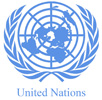|
|
|||
|
Department of Public Information • News and Media Division • New York
|
Sixty-fourth General Assembly
Plenary
3rd & 4th Meetings (AM & PM)
With Crises in Food, Energy, Recession Hitting All at Once, ‘the World Looks
to Us for Answers’, Secretary-General Says, Opening General Debate
General Assembly President Hails United Nations as Most legitimate Forum
For Concerted Global Action, as 30 World Leaders Address Session’s First Day
/…
Background
The General Assembly met this morning to begin its annual general debate.
Statement by the Secretary-General
Opening the sixty-fourth session’s general debate, United Nations Secretary-General BAN KI-MOON recalled that the Assembly gathered every September in a solemn rite –- to reaffirm the United Nations’ founding charter and faith in the principles of peace, justice, human rights and equal opportunity for all. Delegates assessed the state of the world and laid out a vision for the way forward.
/…
Statement by General Assembly President
ALI TREKI, President of the United Nations General Assembly, …
/…
Supporting post-conflict peacebuilding would continue to be a major concern for Member States, as would the promotion and protection of human rights. He noted that the Assembly would review the follow-up to the outcome of the Durban Review Conference as racial discrimination, xenophobia and intolerance challenged societies across the globe. The Assembly would be required to support the development of the Human Rights Council. The question of Palestine and the Arab-Israeli conflict remain unresolved despite its place on the Assembly’s plenary agenda for many years, and still posed a serious threat to international peace and security. A comprehensive and lasting settlement was needed, he said.
/…
Statements
/…
BARACK OBAMA, President of the United States, …
/…
In addition, the United States would continue to seek a just and lasting peace between Israel and Palestine, and the Arab world. Just yesterday, he had met with Prime Minister Benjamin Netanyahu and President Mahmoud Abbas. While progress had been made, he continued to call on Palestinians to end incitement against Israel, and reiterate that America did not accept the legitimacy of continued Israeli settlements.
He said the time had come to relaunch negotiations –- without preconditions –- that addressed the permanent status issues: security for Israelis and Palestinians, borders, refugees and Jerusalem, he said. The goal was clear: two States living side by side in peace and security -– a Jewish State with true security for all Israelis, and a viable, independent Palestinian State with contiguous territory, that ended occupation begun in 1967. The United States would also pursue peace between Israel and Lebanon, Israel and Syria, and a broader peace between Israel and its many neighbours.
/…
ABDELAZIZ BOUTEFLIKA, President of Algeria, …
/…
Continuing, he said Algeria was fully committed to Palestinians and their situation. Indeed, the Middle East would not be able to achieve peace without a just and sustainable solution to that question. Pressure must be brought to bear on Israel and its policy of aggression towards Palestinians. …
/…
FREDRIK REINFELDT, Prime Minister of Sweden, …
/…
As a friend of both the State of Israel and the Palestinian Authority, the European Union urged all parties to take the necessary actions towards peace so that a two-state solution could successfully be implemented. In this regard, he pledged the European Unions support to the efforts of the United States work toward resuming peace negotiations.
/…
JACOB ZUMA, President of South Africa, …
/…
… He also noted that the quest for global peace and security was inseparable from the pursuit of justice, self-determination, human rights and economic development. In this regard, a peaceful solution to the situation in Western Sahara and the Israeli-Palestinian conflict had to be found immediately.
/…
MAHMOUD AHMADINEJAD, President of Iran, …
/…
With regard to Palestine, he said that the entire population of a country had been deprived of their homeland for more than 60 years, and their legitimate right of self-defence had been denied. He noted that while certain Governments unconditionally supported the occupiers against defenceless women and children, at the same time, “oppressed men and women” were subjected to heavy economic blockades, the result of which was “genocide”. He then addressed issues in the wider Middle East and said it was “not acceptable that some who are several thousand kilometres away from the Middle East should send their troops for military intervention” and spread war, bloodshed, aggression and terror.
/…
Before the Assembly were several points on the agenda, he said. The first included the reform of the Organization itself, in particular the structure of the Security Council and the abolishment of veto rights, and the restoration of the rights of the Palestinian people. He also called for an end to inference in Iraq, Afghanistan, the Middle East, Africa, Latin America, Asia and Europe. “Oppression against Palestinians and violations of their rights still continue,” he said. …
/…
* *** *
For information media • not an official record
Document Type: Press Release
Document Sources: General Assembly, United Nations Department of Public Information (DPI)
Subject: Occupation, Palestine question, Peace process, Refugees and displaced persons
Publication Date: 23/09/2009


